60% off your first box + 30% off your second
100% tailored dog food

High-quality ingredients
Zero artificial flavours

Dog weight management isn’t one-size-fits-all
Weight control dog food is about more than a number on a scale. It’s finding meals they enjoy, that help them feel their best every day. That’s where we come in.
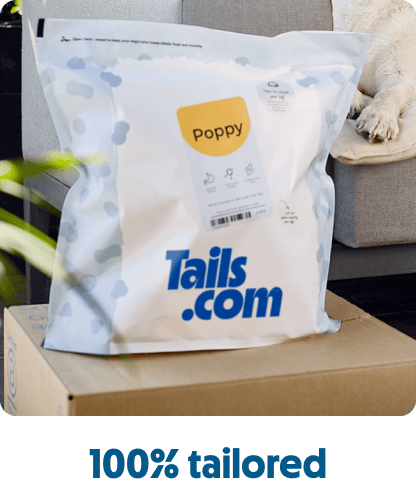
Nutrition they need, flavour they love.
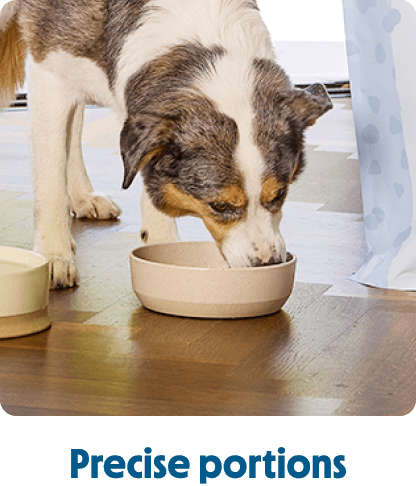
A daily meal plan, created by experts.
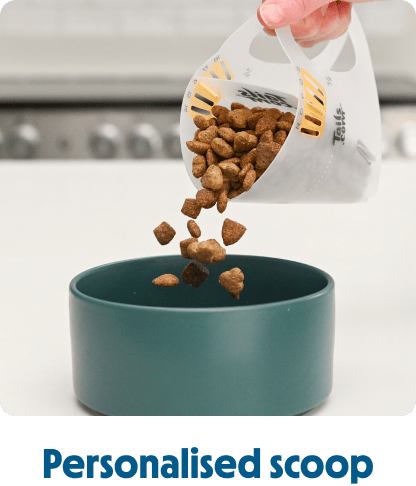
So every bowl supports their goal.
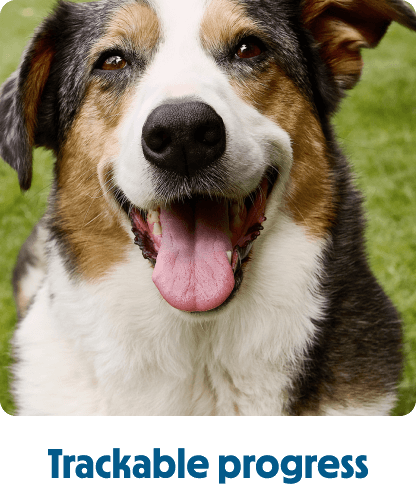
With help from our nutrition experts.
Owners see improvements in 8 weeks
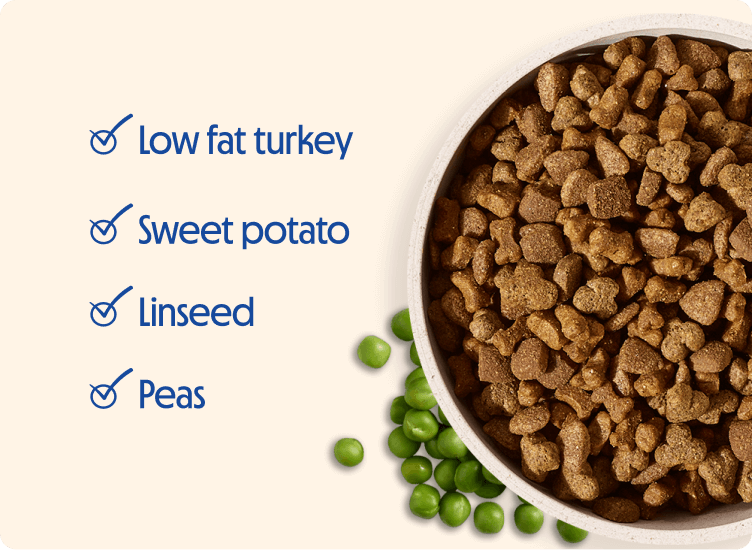
Weight loss dog food
- Low fat protein: to support weight reduction and maintain muscle.
- Complex carbohydrates: to keep them fuller for longer.
- Vibrant veggies: essential fibre for healthy digestion.
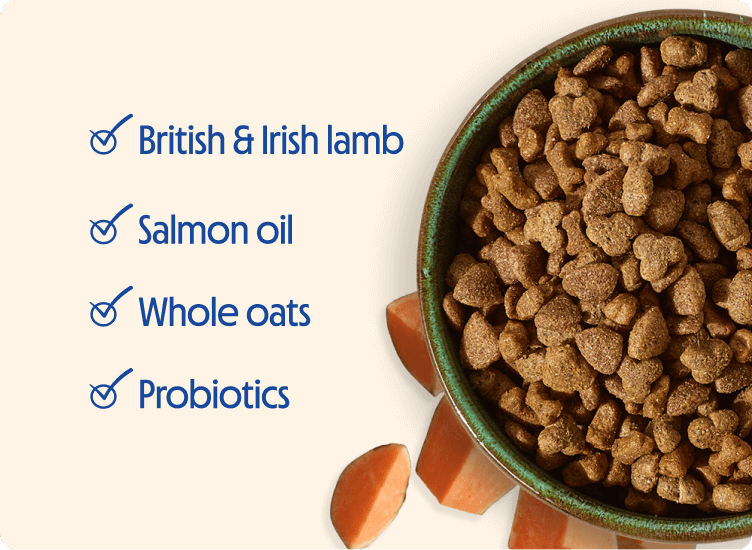
Weight gain dog food
- Tasty proteins: we find the perfect blend for even the fussiest eater.
- Healthy fats: for steady, healthy weight gain.
- Digestion support: to nourish their gut microbiome.

Backed by experts
"I’m so passionate about our unique approach to weight control dog food. We’ve helped thousands of dogs reach their weight goals, supporting longer, healthier, happier lives." Dr Sean McCormack, BSc (Hons), MVB, MRCVS, Head Vet at Tails.com
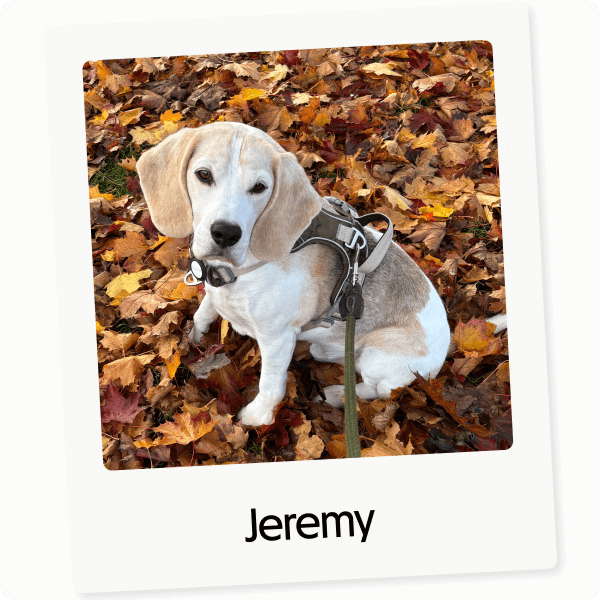
Trusted by dog owners
“For several years vets told us Jeremy was overweight. I had several conversations with Tails.com, who helped us with a plan. He achieved his target weight, and has now maintained a healthy weight for several years!" Kirsty
Get weight management dog food in a few clicks
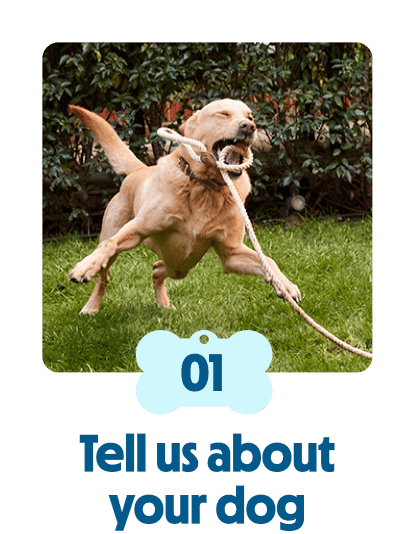
From their breed to their weight goal.
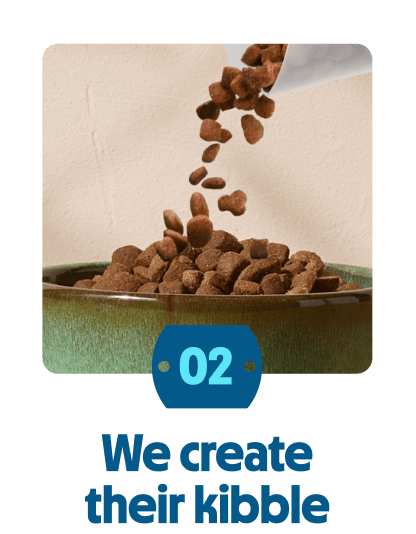
Crafted by our experts, tailored to your dog.

Add wet dog food & other essentials.
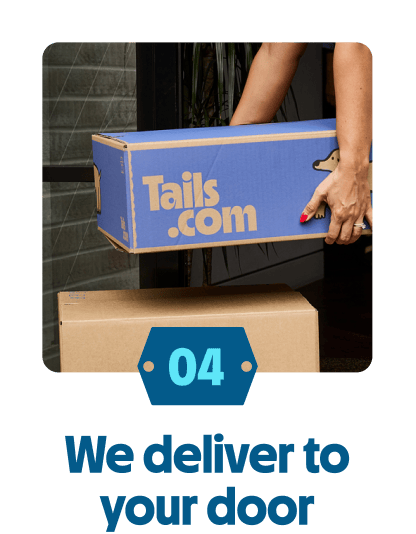
Perfectly portioned, just for them.
Healthy weight, happy wallet
Everything they need from 62p per day. That’s less than your average coffee.
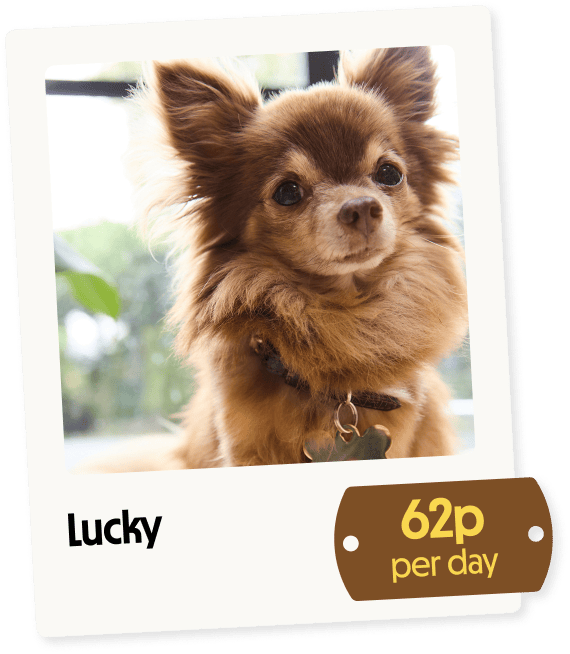
7 year old Chihuahua
As a senior, Lucky’s tasty tailored kibble supports his joints.
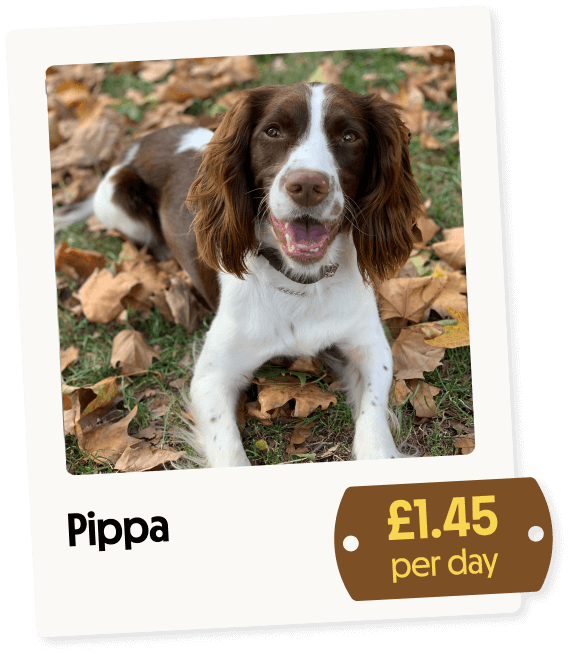
Pippa, Springer Spaniel
Kibble tailored to Pippa’s active lifestyle, helping her keep weight on.
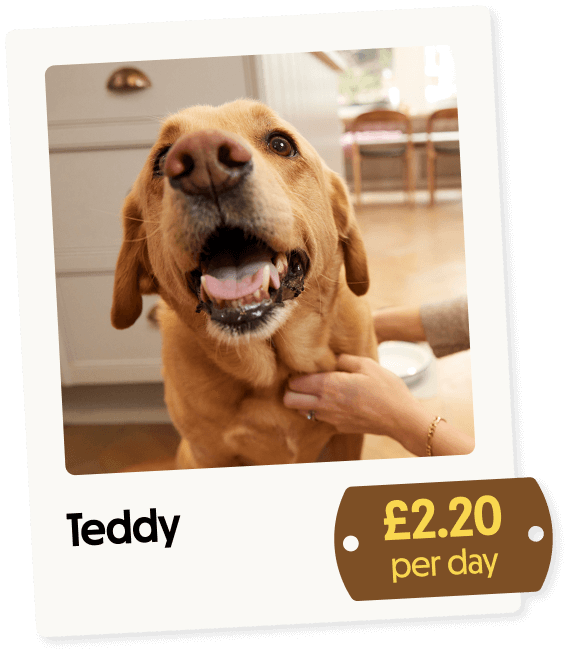
Teddy, Labrador
Tailored kibble and wet food, in exactly the right portions for Teddy.
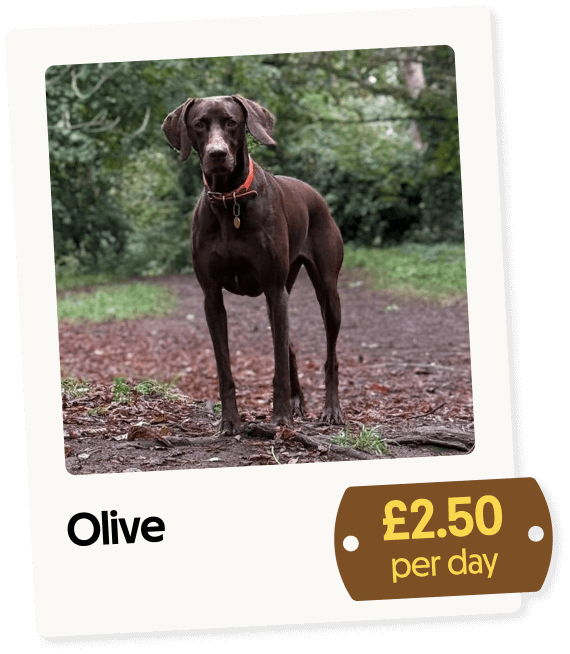
Olive, Crossbreed
Tailored kibble and wet food, with support for her lovely, shiny coat.

Advice from the experts
FAQs
Yes! If your vet recommends weight loss or weight gain, food that’s specifically formulated for that goal can be a game-changer. Weight loss diets are often less calorie-dense, meaning you can feed a satisfying amount without constant portion cutting. Weight gain diets for dogs are often the opposite, filled with calorie-dense foods to encourage your dog to tuck in, while keeping them healthy. Our kibble blends do all this and more. 100% tailored to your dog's age, breed and lifestyle, we provide the unique nutrition they need to thrive. Whatever your dog’s weight control goals are, our vet and nutritionist team has them covered.
Your dog’s personalised meal plan is based on their age, breed, activity level, and weight goals. With clear daily portions to follow, and a free portion scoop to go with it, you’ll reduce the risk of over or underfeeding, and stay on track to hit your dog’s weight goals. We also provide and offer ongoing support to help you monitor progress and fine-tune portions as needed. When your dog’s weight changes, you can simply update their profile online and we’ll do the rest. Adjusting their meal plan to keep them in the best shape of their life.
Absolutely. We can tailor your dog’s food to avoid common allergens, ensuring their unique needs are met without compromise. We create over a million different possible kibble blends, which means we handle a wide range of ingredients. Therefore, trace amounts of excluded ingredients could be present. If your dog has severe allergies, we always recommend you meet with your vet to find the safest diet.
Every dog is different, but if you follow their personalised feeding plan and ensure you're using their kibble scoop correctly, many owners see a difference in their dog’s waistline within 2 weeks. If you’re not seeing any difference after this, then our team are here to help. Just get in touch, and we can help adjust your dog’s tailored blend and portions to help with any weight control goals.
Puppies grow fast and need plenty of energy. A high-protein, high-fat diet is usually best to support their development. However, it's crucial to get the balance right so they don't grow too fast. Our tailored puppy food plans carefully balance their caloric intake, and optimise the level and ratio of calcium and phosphorus they get. This is to ensure their joints are supported during this early period of development. Senior specific dog fod is usually lower calorie as it is assumed they are less active. But we know every dog is different, so we can supply a nutrient dense diet if your senior is losing weight, or still as sprightly as ever! With Tails.com, we can automatically adjust your dog’s calorie intake as they grow and change, to keep them at a healthy weight at every stage. It’s all part of your plan.
We create kibble blends tailored to all kinds of seniors – whether they’re active as ever or enjoying more sofa time. Senior dogs often need help maintaining condition without putting strain on their joints. For this reason, we’ll aim to keep them lean, healthy and happy with tasty flavours. These blends are usually easy to digest and nutrient-dense, allowing older dogs to get what they need from manageable portion sizes.
Get started with 60% off your first box + 30% off your second
